
views
X
Research source
U.S. Census Bureau 2004
seniors aged 65 to 74 make up 5.4 percent of internet users. And 35.9 percent of seniors are regular internet users,[2]
X
Research source
J Michael Cuciti, Computer Instruction and Andragogy: Best Methods to Teach the Elderly E-mail as a Communication Tool, p.4
making motivated senior citizens a rich source of potential Facebook users. If you're keen to help your grandparents stay in touch with the rest of the family, helping them to get onto Facebook might just be one of the best things you can do to keep them connected! Here are some suggestions on how you can help get a senior citizen or two connected on Facebook.
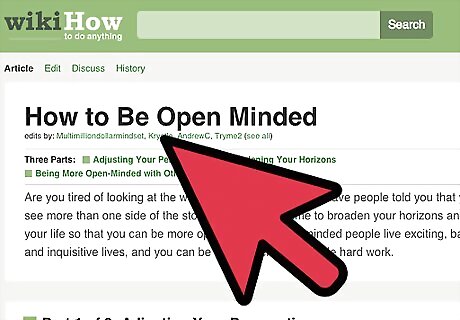
Be open-minded. It doesn't matter what age you are – you can learn technology. The real barrier is likely to be attitude – the younger generations believe that there is no point in teaching older generations Facebook, and in turn, the elderly believe there is no point in being a part of such online social networking. Focus on the reality that many senior people care deeply about any method of communication that will enable them to remain connected with their family, friends, and other people they care about. The convenience, accessibility, and low expense of online interaction provides adequate motivation to try something new like Facebook provided you explain the purpose and benefits adequately. Focus on making it clear that there is nothing magical or strange about Facebook. Have clear explanations ready. Bear in mind that older adults tend to be persistent, patient, and enjoy seeking out intellectual stimulation. In addition, elderly people tend to be just as curious as kids. Take these positive traits and apply them to your Facebook training.
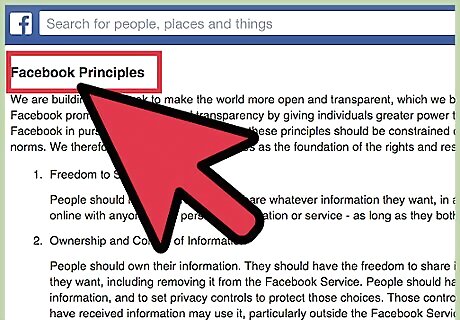
Explain the purpose of Facebook to your elderly potential convert. Unless you've been specifically asked by your elderly friend how to use Facebook, this may be your biggest hurdle. If you're trying to get granddad convinced to have a Facebook account, you're likely to be asked: "But what do I want to do that for? What's it do for me that I don't already have?" And because all adults need to know why they need to learn something and are most attentive when the learning is of immediate value and relevancy, you'll have to take a deep breath and come up with some persuasive reasons, such as: "It's a great way to find old buddies!" – Explain to your senior friend how easy it is to catch up with long lost friends. Many elderly people are reconnecting with long-lost friends via Facebook. If you have any examples, provide them, especially if they involve elderly people. "It's a way that you can keep in touch with me and the rest of the family!" – Show your senior friend photos, status updates, and other family information that they can tap into and keep abreast of as family grows, travels, achieves successes, etc. "X celebrity uses it!" – Name their favorite celebrity, politician, poet, author, sportsperson, etc., and show them his or her account. Explain how they can be a fan of this person on Facebook, such as Susan Boyle. "You don't need to remember anyone's email, let alone email them!" – Show how they can keep up with friends just by using Facebook. "You can get free deals, specials, etc., from your favorite stores and companies!" – Show them how they can find vouchers, coupons, special deals etc., by becoming fans of certain company sites. "You can play games on Facebook!" – Take the time to show them games and apps like Farmville on Facebook that might pique their curiosity. Growing numbers of seniors are enjoying Facebook games, which has the added benefit of exercising the brain and hand muscles. "Facebook can narrow the generation gap." - Throw this one in to show you think granddad's as hip as you!

Explain the basics to your senior friend before opening an account. Facebook can be pretty confusing to master for people who are new to social networking, whatever their age. If you have an account on the site, log in and give your senior friend a visual overview of how to get started, using your account as an example. Work through it slowly and methodically and be patient. If you need to go over things again, do so. Repeat what you're showing them, take it slowly, and stop after every few explanations to give them hands-on practice. If you're getting frustrated, either take a break, or suggest that they can contact you whenever they strike a problem or have a question rather than repeating things too many times. Older adults learn best by "doing" and it might be a good idea just to go and get a cup of coffee and read a magazine in the background while they play around with it for a bit. Don't use Facebook or online jargon without explaining it. For example, instead of going on about having a good avatar, be sure to say something like: "It's really important to make sure you have a clear photo on your profile page. A photo is usually known as an avatar. People look to see your photo or avatar to work out whether or not they know you." Keep in mind that all online related words you use must be translated to more commonly known words until your senior friend is used to the new terms.
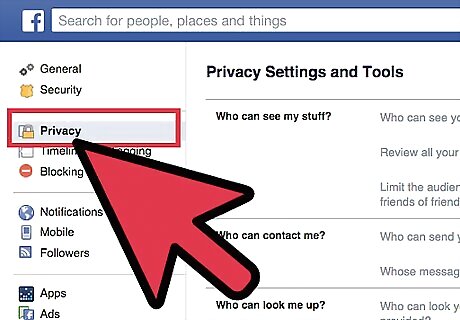
Explain the privacy policy. Many seniors aren't comfortable with sharing so much information about themselves. Facebook might not be for them, but maybe diaspora is.
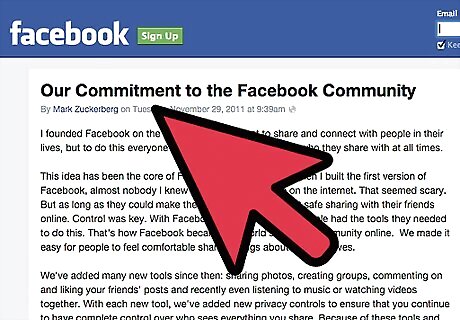
Make sure your senior friend can commit to being a member of Facebook. If your granddad is only doing this to humor you, it's probably a waste of time. Ask if the person you're helping is able to spend a little time now and then answering messages and friend requests from old buddies. The reactions you receive to your persuasive reasoning outlined above should help you to work out their level of likely ongoing active interest.
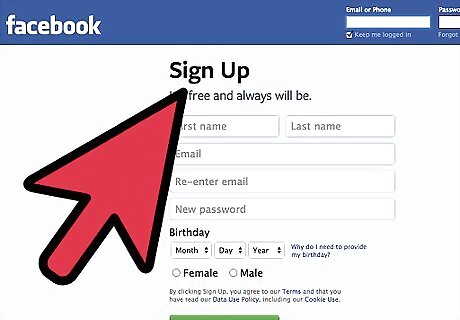
Create their account with them. Adjust volume and font size if necessary, before starting. Ensure that your senior friend has a valid email address before signing up; it's required and it's useful for receiving notifications of messages, friend requests, events, and so on, outside of Facebook. If they do not have an email address, create one for free using providers such as Gmail, Yahoo, Hotmail, etc. Have them fill in all the required fields when creating the Facebook account, and if they're uncomfortable providing personal information, show them how to customize their privacy settings as you go. Reassure them about their privacy settings. Explain the settings thoroughly to make sure that they know what is and is not searchable by other people online. Respect the extent of privacy they wish to enforce. Don't be afraid to print out the account steps in large print. Allowing older adults to read the instructions and explanations on paper can be reassuring and can help the learning and recognition process to activate more quickly.
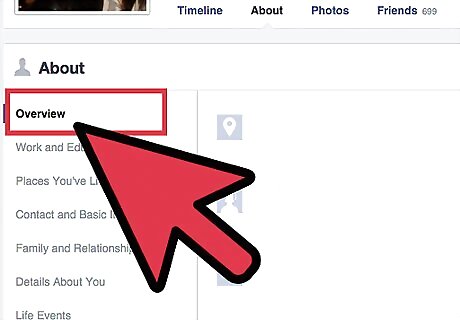
Show your elderly friend how to add information to their profile. An email address and birthday is pretty bare for a Facebook profile - help them add information such as their current or former place of employment, old high schools or colleges, likes and interests, contact information, and more. Remember, only provide the information they are comfortable giving out and that the accessibility of all information can be adjusted with "Privacy Settings".
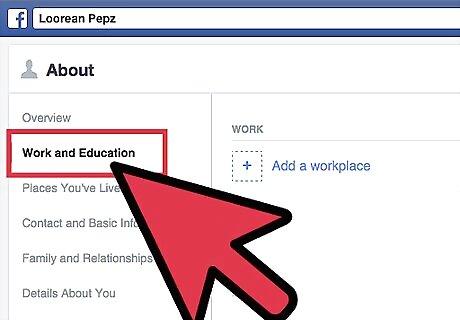
Help your senior friend join a school or workplace network, as well as Groups and Pages pertaining to old clubs or interests. This is a great way for them to reconnect with old friends, relatives, coworkers, employees, classmates, etc.
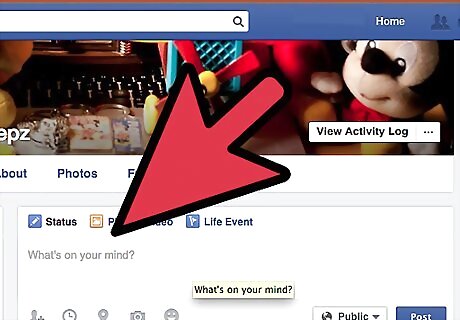
Encourage your newly converted elderly Facebook member to add their wisdom to Facebook. Everyone can learn from what senior citizens have to share. Encourage your senior friend to open up and share stories, thoughts, ideas, and wisdom with others on Facebook. If your senior friend really takes to Facebook, help him or her gain a wider following of friends by telling your friends and liking and sharing their updates.

Learn from them. The wisdom of people who have lived many decades is irreplaceable and intensely valuable. If your newly Facebook converted senior friend makes pertinent comments about using the site, the way people are using the site, or even your seeming addiction to it, then maybe they're onto something. Keep your ears open to learn from their wise perspective about a modern way to do something humans have always done - keeping in touch. Have a cup of something together and ask your senior friend what his or her thoughts about Facebook are. Ask questions and find out if there are any ways you can help to enhance their experience of being on Facebook. And remember to have a good laugh to relieve the tension built up from learning a new skill.
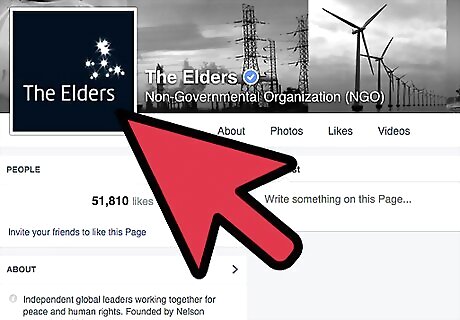
Let it be. If you've tried and your senior friend has been polite but displays a total lack of interest the moment you turn your back, be understanding. It isn't necessarily because they're older – it's probably because they're a lot wiser about how they'd like to use their time, and it's just not for them. Stick with the tried and true methods of keeping in touch through phone calls and turning up now and then.

















Comments
0 comment